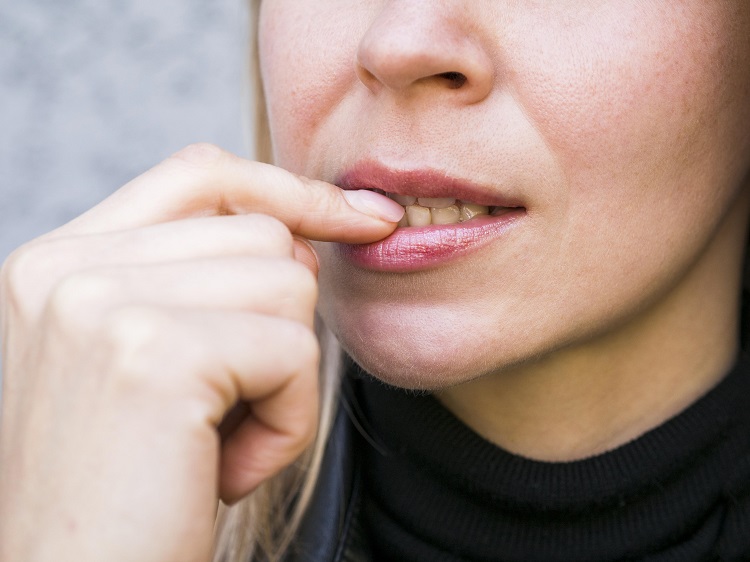Living with HIV comes with many health challenges, and one of the often-overlooked issues is the development of mouth ulcers. These painful sores can appear on the tongue, inside the cheeks, gums, or lips, and they can make everyday activities like eating, drinking, or even talking uncomfortable. While anyone can develop mouth ulcers, studies show that People With HIV are more prone to them due to the weakened immune system. Understanding why mouth ulcers are common in people with HIV is essential for both prevention and treatment.
Mouth ulcers in HIV are not just about discomfort—they can also be an early sign of underlying health complications. They might reflect the body’s struggle to fight infections, nutritional deficiencies, or stress. For people living with HIV, knowing how and why these ulcers develop can help manage them effectively and improve overall oral health.
The Connection Between HIV and Mouth Ulcers
The immune system plays a critical role in keeping infections under control. HIV targets and weakens the immune system, which makes it easier for opportunistic infections and conditions like mouth ulcers to occur. When the body cannot defend itself properly, viruses, bacteria, and fungi can flourish in the mouth, leading to painful sores.
Another reason why mouth ulcers are common in people with HIV is the direct effect of the virus on oral tissues. HIV can cause inflammation and changes in the lining of the mouth, which makes it more vulnerable to ulcers. This is why healthcare providers often pay close attention to oral health when monitoring HIV patients. A sudden increase in mouth ulcers could indicate changes in a person’s immune status.
Common Types of Mouth Ulcers in HIV Patients
People living with HIV may experience several different types of mouth ulcers. The most common include aphthous ulcers (also known as canker sores), which are small, round, and painful. These often appear inside the cheeks, on the tongue, or at the base of the gums.
Another type is caused by opportunistic infections such as oral thrush (a fungal infection), herpes simplex virus, or cytomegalovirus. These infections are more aggressive in people with HIV, and the ulcers they cause tend to last longer and be more painful. Some HIV medications can also trigger mouth ulcers as a side effect, making oral care even more important.
Mouth Ulcers Are More Severe with HIV
For people without HIV, mouth ulcers often heal within a week or two. However, in individuals with HIV, the healing process is slower due to the weakened immune system. This means ulcers may persist for weeks or even months, causing chronic pain and difficulty with nutrition.
Another reason why mouth ulcers are common in people with HIV is that the virus often leads to nutritional deficiencies. Low levels of vitamins such as B12, folic acid, and iron can increase the risk of ulcers. Without proper nutrients, the body struggles to repair tissues, and small sores can quickly become larger and more painful.
The Role of Stress and Lifestyle Factors
Stress is another major factor that contributes to mouth ulcers in HIV patients. Living with HIV can be emotionally challenging, and stress weakens the immune system even further. Stress-induced hormonal changes can trigger ulcers or make existing ones worse.
Lifestyle habits also play a role. Smoking, drinking alcohol, or eating spicy and acidic foods can irritate the mouth lining and increase the frequency of ulcers. Poor oral hygiene can allow bacteria to thrive, creating the perfect environment for sores to develop.
Impact of Antiretroviral Therapy (ART) on Mouth Ulcers
Antiretroviral therapy (ART) has transformed HIV from a life-threatening disease into a manageable condition. However, ART drugs sometimes come with side effects, and mouth ulcers are one of them. Certain medications can cause dryness in the mouth or irritation of the mucosal lining, leading to painful ulcers.
On the other hand, effective ART can reduce the frequency of mouth ulcers by improving immune function. People on consistent HIV treatment usually experience fewer oral health issues compared to those who are not taking their medications properly. This highlights the importance of adherence to ART for better overall health, including oral health.
How Mouth Ulcers Affect Daily Life with HIV
Mouth ulcers may seem like a small issue, but for people with HIV, they can have a big impact on quality of life. Eating becomes difficult, which may lead to weight loss or poor nutrition. Speaking can be painful, affecting social interactions and self-confidence. Chronic pain from ulcers can also increase emotional stress, creating a cycle that worsens both physical and mental health.
For some, mouth ulcers may also be a sign of advanced HIV or opportunistic infections. This makes it crucial for patients and doctors to monitor oral health closely. Early detection and treatment of ulcers can prevent bigger health problems down the line.
Treatment Options for Mouth Ulcers in HIV
Treating mouth ulcers in people with HIV requires a multi-step approach. Doctors may prescribe topical treatments such as antimicrobial mouthwashes, gels, or steroid creams to reduce pain and inflammation. Antifungal or antiviral medications may be needed if the ulcers are caused by infections like herpes or thrush.
In addition to medical treatments, patients are encouraged to maintain proper oral hygiene. Brushing gently with a soft-bristled toothbrush, avoiding harsh mouthwashes with alcohol, and rinsing with warm salt water can all help reduce irritation. Staying hydrated and avoiding foods that trigger ulcers—such as spicy or acidic foods—can also speed up healing.
Natural Remedies and Self-Care for Mouth Ulcers
Alongside medical treatment, many people with HIV find relief from mouth ulcers using natural remedies. Honey, for example, has antibacterial properties and can soothe painful sores when applied directly. Aloe vera gel, turmeric, and coconut oil are also known for their healing effects and can provide comfort.
Simple lifestyle changes such as reducing stress through meditation, yoga, or regular exercise can also lower the risk of developing mouth ulcers. Ensuring a balanced diet rich in vitamins and minerals supports the immune system and improves oral health. These small steps, combined with medical treatment, make it easier to manage ulcers in the long run.
Preventing Mouth Ulcers in People with HIV
Prevention is always better than cure, especially when dealing with recurring ulcers. For people with HIV, prevention means sticking to antiretroviral therapy, maintaining a healthy diet, practicing good oral hygiene, and managing stress. Regular dental checkups are also crucial because dentists can spot early signs of oral health problems before they become severe.
Hydration plays a big role as well. A dry mouth creates the perfect environment for ulcers, so drinking enough water and avoiding alcohol-based products can reduce risks. Quitting smoking and limiting alcohol consumption are also powerful steps toward better oral health.
The Importance of HIV Oral Health Awareness
Raising awareness about why mouth ulcers are common in people with HIV is important for both patients and healthcare providers. Many people living with HIV do not realize that mouth ulcers can be a sign of changes in their immune system. Educating communities about oral health can lead to earlier treatment and better quality of life.
Healthcare providers should also encourage routine oral examinations as part of HIV care. By addressing oral issues early, doctors can prevent complications and improve treatment outcomes. For patients, understanding that mouth ulcers are not just random sores but linked to HIV can help them seek proper care without delay.
When to See a Doctor for Mouth Ulcers
Not all mouth ulcers require medical treatment, but people with HIV should be extra cautious. If ulcers last longer than two weeks, become unusually large, or are accompanied by fever, weight loss, or swollen lymph nodes, it is important to see a doctor. Persistent ulcers may indicate underlying infections or issues with HIV treatment.
Doctors may run blood tests, check immune system levels, or adjust medications if ulcers are linked to side effects. In some cases, referral to a dentist or oral specialist may be necessary. Timely medical attention can prevent complications and make living with HIV much more comfortable.
Final Thoughts on Mouth Ulcers and HIV
Mouth ulcers are a common and often painful reality for people Living With HIV. They occur due to weakened immunity, opportunistic infections, nutritional deficiencies, stress, and sometimes as side effects of HIV medications. While they may seem minor, these ulcers can have a major impact on quality of life, making it important to understand, treat, and prevent them.
By combining medical treatment, natural remedies, proper oral care, and stress management, people with HIV can reduce the frequency and severity of mouth ulcers. Ultimately, awareness and proactive care can help individuals manage oral health better and live healthier, more comfortable lives with HIV.


